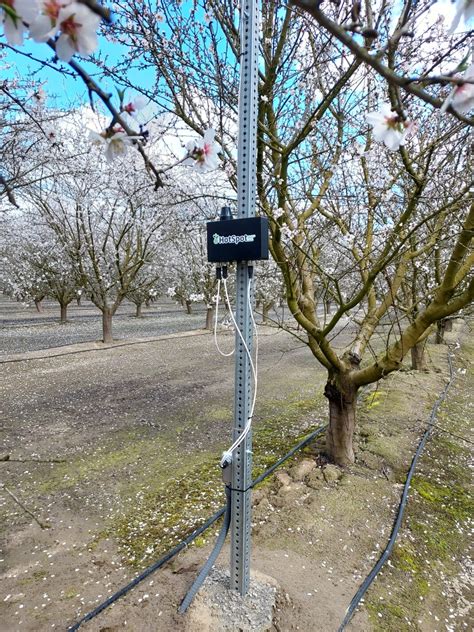The importance of efficient irrigation systems cannot be overstated. With the world's population projected to reach 9.7 billion by 2050, finding ways to conserve water while maintaining crop yields is crucial. Traditional irrigation methods often result in significant water waste, reduced crop quality, and increased energy consumption. However, recent advancements in aqua tech solutions are revolutionizing the way we approach irrigation.
The consequences of inefficient irrigation systems are far-reaching. Not only do they waste precious water resources, but they also contribute to reduced crop yields, increased energy consumption, and environmental degradation. In fact, the United Nations estimates that irrigation systems account for approximately 70% of global freshwater withdrawals. It is clear that a more sustainable approach to irrigation is needed.
Fortunately, advancements in aqua tech solutions are providing farmers, agricultural companies, and governments with the tools they need to optimize irrigation systems. By leveraging cutting-edge technologies such as precision irrigation, data analytics, and IoT sensors, farmers can now make data-driven decisions about water usage, reduce waste, and increase crop yields.
Understanding Aqua Tech Solutions
Aqua tech solutions encompass a range of innovative technologies designed to optimize irrigation systems. These solutions can be broadly categorized into three main areas: precision irrigation, data analytics, and IoT sensors.
Precision Irrigation
Precision irrigation involves using advanced technologies to deliver the right amount of water to the right place at the right time. This approach is made possible through the use of GPS-guided irrigation systems, drones, and satellite imaging. By using these technologies, farmers can create detailed maps of their fields, identifying areas that require more or less water.
For example, a farmer using precision irrigation might use a GPS-guided system to irrigate a specific section of their field that is experiencing drought stress. This approach ensures that water is not wasted on areas that do not require it, reducing overall water consumption.

Data Analytics
Data analytics play a crucial role in optimizing irrigation systems. By analyzing data from various sources, including weather forecasts, soil moisture levels, and crop water requirements, farmers can make informed decisions about water usage.
For instance, a farmer might use data analytics to identify trends in water usage patterns, allowing them to adjust their irrigation schedule accordingly. This approach ensures that water is used efficiently, reducing waste and minimizing the risk of over-irrigation.

IoT Sensors
IoT sensors are being increasingly used in irrigation systems to monitor soil moisture levels, temperature, and other environmental factors. These sensors can be connected to a central hub, providing farmers with real-time data on the condition of their fields.
For example, a farmer might use IoT sensors to monitor soil moisture levels in their field. If the sensors detect that the soil is becoming too dry, the farmer can adjust their irrigation schedule accordingly, ensuring that their crops receive the right amount of water.

Benefits of Aqua Tech Solutions
The benefits of aqua tech solutions are numerous. By optimizing irrigation systems, farmers can reduce water waste, increase crop yields, and minimize the risk of over-irrigation.
Water Conservation
Aqua tech solutions can help reduce water waste by delivering the right amount of water to the right place at the right time. According to the United States Department of Agriculture, precision irrigation systems can reduce water waste by up to 30%.
Increased Crop Yields
By providing crops with the right amount of water, farmers can increase crop yields and improve overall crop quality. In fact, a study by the University of California found that precision irrigation systems can increase crop yields by up to 20%.
Reduced Energy Consumption
Aqua tech solutions can also help reduce energy consumption by optimizing irrigation systems. By using data analytics and IoT sensors, farmers can identify areas where energy is being wasted and make adjustments accordingly.






Conclusion
Aqua tech solutions are revolutionizing the way we approach irrigation. By leveraging cutting-edge technologies such as precision irrigation, data analytics, and IoT sensors, farmers can optimize irrigation systems, reduce water waste, and increase crop yields. As the world's population continues to grow, it is essential that we adopt sustainable approaches to irrigation. Aqua tech solutions offer a promising solution to this challenge, and their adoption is expected to have a significant impact on the future of agriculture.
We would love to hear your thoughts on this topic. Share your experiences with aqua tech solutions in the comments below. How do you think these solutions can be used to optimize irrigation systems? What benefits have you seen from adopting aqua tech solutions?
What is aqua tech?
+Aqua tech refers to the use of advanced technologies to optimize irrigation systems. This includes precision irrigation, data analytics, and IoT sensors.
How can aqua tech solutions benefit farmers?
+Aqua tech solutions can help farmers reduce water waste, increase crop yields, and minimize the risk of over-irrigation.
What is the future of aqua tech?
+The future of aqua tech is expected to be shaped by advancements in technologies such as artificial intelligence, machine learning, and IoT sensors. These technologies will enable farmers to make more informed decisions about irrigation, reducing water waste and increasing crop yields.
